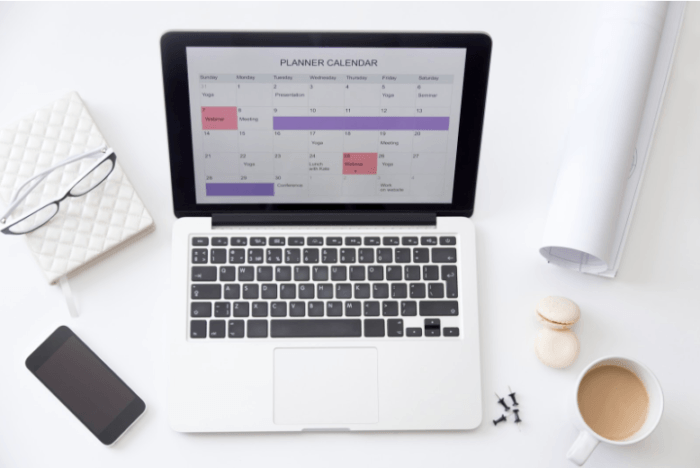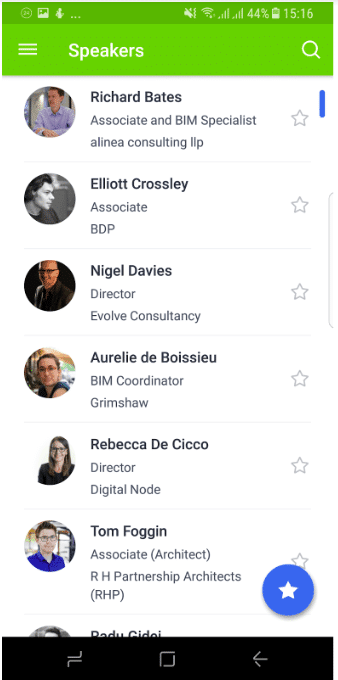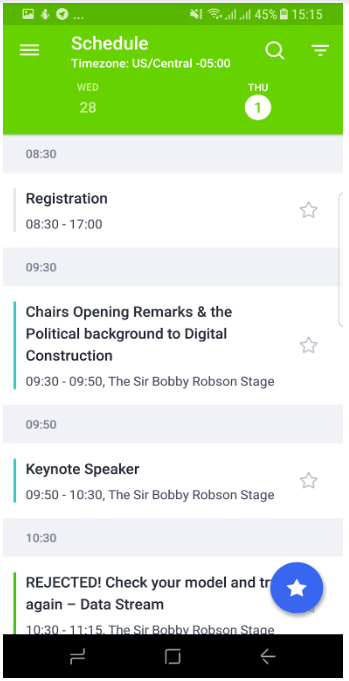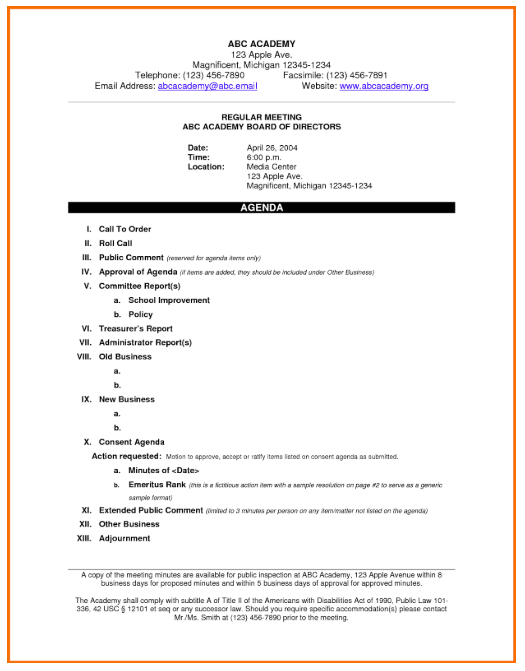From the length of the session to “Who’s the next speaker?”, there are lots of questions that your corporate event guests expect to be answered in the event agenda. By guiding attendees through event experiences, you minimise the chance that someone will miss an important session or will arrive late.
The corporate event agenda is the content that describes what’s happening when at an event. Depending on the size and type of an event, you can embed your agenda in a mobile app, showcase it on an event website, or use a paper event program (yes, people still do that). The latter works when you don’t have the capabilities needed to develop an intuitive app, the use of electronic devices won’t be allowed on site, or you are targeting an older demographic.
Since the landscape of corporate event types is pretty rich, there might be lots of confusion on how to align specific event formats with the right agenda. What’s more, many event professionals question the need to build an agenda for small-scale corporate meetings in the first place. The following guide, along with three agenda samples, is meant to demonstrate the value of an event agenda for versatile corporate meetings.
How to create a corporate agenda for an event

To develop an event agenda, you basically have to pack your corporate meeting into one data set. What’s challenging about this is ensuring that the content you bring to your prospective attendees is relevant and understandable. Here are the key steps we recommend you take to build a targeted agenda for an event:
- Brainstorm questions. The point of writing an event agenda is to communicate a message. Therefore, before starting your agenda story, ask yourself what questions your audience might have about the upcoming corporate meeting. Write down everything that comes to mind, from venue specifications to parking and navigation. Next, transform your notes into a structured list of questions and answers. This will be the backbone of your corporate event agenda.
- Align with survey results. Whether your target audience is represented by company clients or employees, it’s always a good idea to ask people about their expectations. Conduct a pre-event survey to clarify what insights most people would want to generate, what they are interested in, and what value they want to derive from the event. Don’t make them write an essay though. Three to five questions added to a registration form or an email invite will be enough. Once you get the results, analyse whether you have the resources you need to meet the expectations, and then start creating targeted event content.
- Cut down on the boring stuff. The last thing your event guests want is to go through a five-page document to find an answer to a single question. Limit your corporate event agenda to a short timeline with information on navigation, the list of activities, and short pieces of content defining the value of these activities.

- Make the right showcase of your agenda. Whether it’s a printed event program, a landing page, or an event app, design matters. Ensure that the activities information is presented as clearly as possible. To strengthen your agenda showcase, consider using website building tools with pre-made agenda templates that you can customise based on your needs.
- Ensure all information is easily searchable. If you organise a trade fair or a large-scale conference, the only way to make an event program work is by syncing the content with an event app. The major challenge you’ll face with event apps is setting up navigation and filtering modules. Whether people go on an international incentive trip or attend a charity gala, they always expect the same thing: personalised experiences. Organise the list of activities and speakers by tracks, themes, or locations to help attendees easily filter data. Also, if your corporate event has over 40 sessions, it’s a good idea to add a schedule feature that allows users to build their personal agenda.
- Experiment with a functional agenda. Thanks to the advanced capabilities of event apps, you can now accomplish much more with your agenda than just keeping attendees informed. Pharma Forum was one of the first events that kick-started the use of a functional agenda. For this forum, a mobile game that rewarded attendees for their engagement was developed. Basically, it prompted the guests of the forum to tweet about the event, establish connections via the app, and visit exhibitor booths in exchange for prizes. If growing leads and an expanding community are the goals of your corporate event, experimenting with a functional agenda might be the best thing to do.
3 examples of corporate event agendas
Corporate event agenda formats have to cater to the types of events you organise. If it’s a business meeting with your internal staff, developing a dedicated event app isn’t necessary. However, this doesn’t mean you should ignore an event agenda completely. By giving some insight into the program through your agenda, you ensure that people come prepared so that you won’t have to waste time on pre-event instructions on the ground. Check out these three corporate event agenda templates that reflect targeted content creation based on the type of event:
Corporate conference agenda template (Bim Show Live)


Takeaway: Since networking and sales perspectives are usually very important parts of corporate conferences, using handy apps where people can connect and shape their schedules is the best choice.
Appreciation event agenda template (Graduate Women of Excellence)

Takeaway: Appreciation events usually bring people from one company, niche, or industry together, which means connection building isn’t the first priority. A simple agenda list embedded to your website with the basic information on activities and a neat design is the perfect fit here.
Board meeting agenda template (ABC Academy)

Takeaway: A board meeting agenda should include the plan of discussions and cover routine tasks, new business goals, and some urgent aspects. It’s a good strategy to assign a timeframe for each item since board meeting discussions have to be recorded by a secretary.
Conclusion
A good corporate event agenda is something that makes participation experiences meaningful. We hope that these tips and examples of corporate event agendas will help your company not only communicate an event story in the right way but also boost your revenue and build a strong corporate community.








